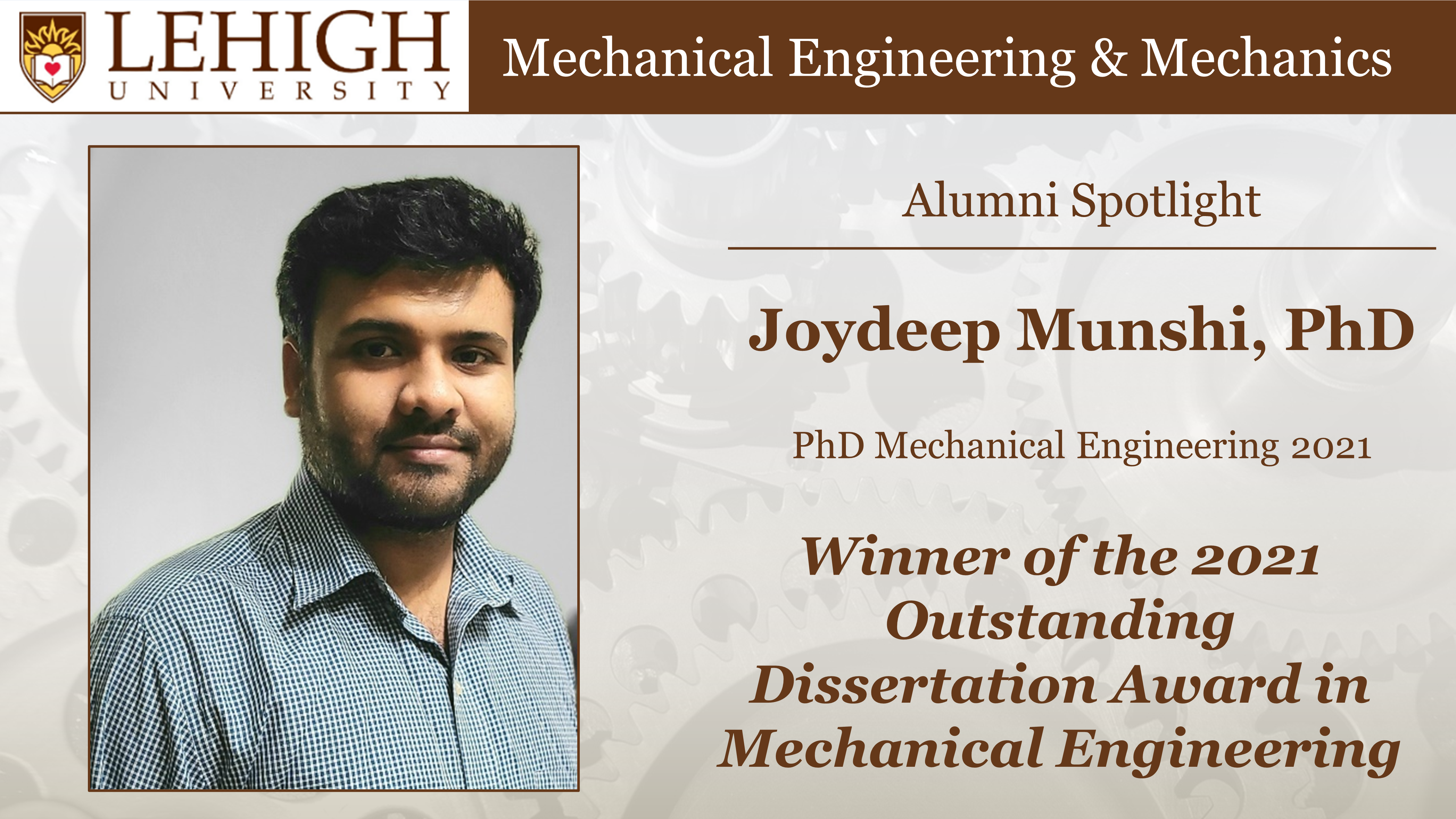Name: Joydeep Munshi
Education: Mechanical Engineering
Degrees, Institutions, Years
PhD, Lehigh University, 2020
Master’s, Jadavpur University, 2017
Bachelor’s, West Bengal University of Technology, 2012
Where are you from, and where do you currently reside?
I am from a city called Kolkata which is based in West Bengal state in the eastern region of India. Following completion of my bachelors and master’s degree from Kolkata, I joined the PhD program in mechanical engineering at Lehigh. I currently reside in King of Prussia, Pennsylvania after graduating from Lehigh.
What is your current professional position?
I am currently continuing thrive to do research and I am a postdoctoral research associate at Argonne National Laboratory. I work in the Theory and Modeling group in Center for Nanoscale Materials (CNM) at Argonne.
What were you studying for your dissertation research?
In a nutshell, my research during PhD focused on improving the performance of photovoltaic devices to convert solar energy to electricity using with the help of theoretical and computational sciences. Traditionally, since its advent, solar cells deployed in the commercial energy generation are made from Silicon-based inorganic semiconductors. However, due to the ultra-low manufacturing cost and low-temperature environment-friendly processing techniques, organic photovoltaics (OPV), made from semiconducting polymers and other small hydrocarbons, have gained lot of attention among materials scientists in the past decade. Although promising, these materials seldom achieve performance which is comparable to the omnipresent inorganic counterpart. My research contributed towards developing a chemically informed computational approach to accelerate the materials discovery and optimization for enhanced efficiency and stability of these organic photovoltaics.
How did you first get interested mechanical engineering?
Although, during my undergraduate studies, I majored in instrumentation engineering, I was ever since motivated by classical and quantum mechanics, especially how macroscale material properties are correlated to the nanoscale atomistic realm. During a very interesting interdisciplinary graduate program at Jadavpur University, I was involved in computational modeling of fluid mechanics (a.k.a. CFD) and microfluidics. This made me fascinated towards theory and computations of mechanics and materials sciences. The motivation towards computational sciences and its application in nanotechnology convinced me to pursue a PhD in Mechanical Engineering under supervision of Prof. Ganesh Balasubramanian whose research thrust is to understand thermal and mechanical properties of materials by leveraging atomistic modeling.
Tell us about your experiences as a STEM professional. What accomplishment(s) are you most proud of and what do you hope to accomplish in the future?
I would firstly share my sincere gratitude to the faculty members from my graduate (Master’s) university in India who have exposed me to the world of research. At Lehigh, I was privileged by all the resources which were made available by the MEM department and my PhD advisor as well. I was always motivated and encouraged by my research group towards achieving my goals and apply the findings towards the benefit of the community. As a STEM professional, I am hoping to serve as a faculty member in mechanical and materials science engineering soon. Alongside the contribution to the materials science research community, I would like to take initiatives in teaching and motivating young students by strengthening the educational pipeline of high school, undergraduate and graduate curriculum. My teaching effort would focus on engaging young and underrepresented students in the STEM fields.
What advice would you give your younger self?
My first advice towards my younger self would be to have more patience. During the past decade, I have been distracted on several occasions when I considered quitting research. Ever since I acknowledged that failure is part of success in research, I have always kept my patience and devoted myself to cherish the failures as they always teach me something new. And the final advice to my younger self would be to have flexibility and an urge to mold oneself to changes. Accepting change and being adaptive are perhaps the most important assets for a successful researcher.

